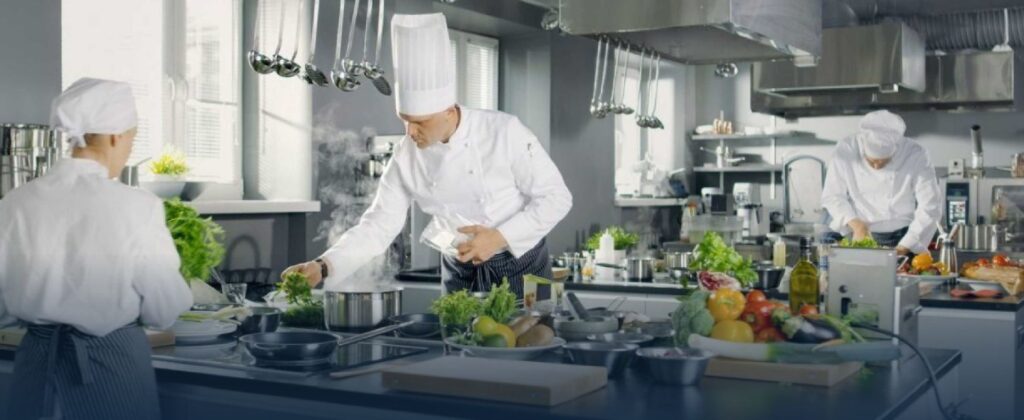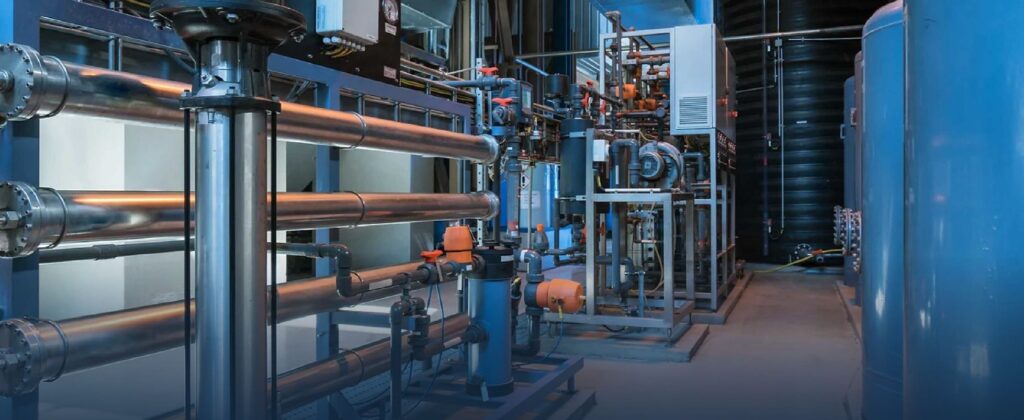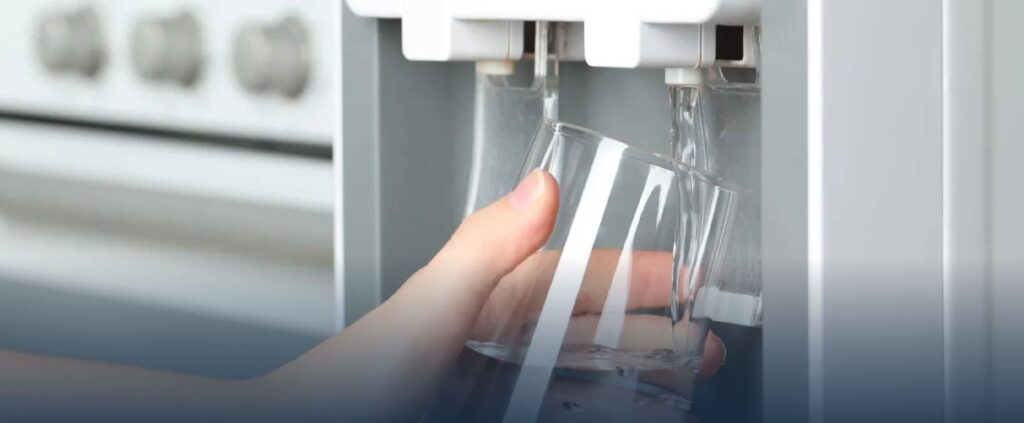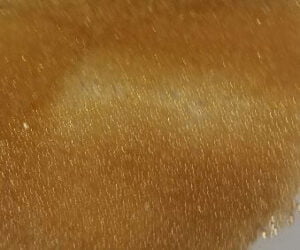~ ALGESTER, QUEENSLAND ~
Water Softeners Commercial Kitchens – Nursing Home
Pacific Water Technology recently commissioned a new water softener commercial kitchen at Algester Nursing Home to treat the water supply to the commercial kitchen and laundry. The facility has been struggling with scale build-up inside the hot water systems, steamers and dishwashers. The problem, in particular, manifested itself as scale inside the headers clogging up the steam nozzles. Brisbane water supply is considered hard and can reach almost 150mg/l CaCO3. In simple terms, the water contains minerals like calcium and magnesium that become insoluble when heated and drop out of the solution as a white deposit (lime build-up).
Calcium and magnesium ions (these are both positive ions) in water join with the soap to form an insoluble curd and reduce the effectiveness of the soap as a washing agent. The real problem comes when you try to wash the curd out of the clothes because as an insoluble material it sticks to the fibers of the clothes, does not re-dissolve and is left behind after rinsing. So, you may have added dirt to the clothes (in the form of these insoluble calcium and magnesium compounds) rather than cleaning them. Clothes may feel damp even though they are dry, and do not have a ‘crispness’ after washing. Over time, this soap curd will give a dull yellow colour to white materials.
In the bath or shower, soap is difficult to get a lather with hard water and instead of feeling slippery, it seems difficult to wash.
Other classification systems are intermediate to the Australian Drinking Water Guidelines (2004) and refer to various scales of total hardness as:
Soft <17 mg/L CaCO3
Slightly Hard 17-60 mg/L CaCO3
Moderately Hard 60-120 mg/L CaCO3
Hard 120-180 mg/L CaCO3
Very Hard >180 mg/L CaCO3
An effective way to solve your hard water problem is to remove the hardness ions from your water using an ion exchange water softener.
How do ion exchange water softeners work?
One of the biggest misconceptions about water softeners is that the salt is what softens your water. What actually softens the water are thousands of tiny resin beads within the tank that filter out hard water chemicals. The salt is used to clean the resin beads during a regeneration cycle, allowing the system to continually remove hardness from your water supply.
There are many different types of softeners, each with its own benefits. The method used most often in homes is cation exchange, the principles of which are simple. An ion is an electrically charged atom or group of atoms. A cation is a positively charged ion. The water is softened when the hardness ions (magnesium and calcium) are exchanged for sodium ions. This exchange occurs in a resin bed during the softening cycle.
Three main parts make up most water softeners:
- Resin Tank – Contains the resin bed.
- Resin Bed – This is made up of tiny bead-like material often made of styrene and divinylbenzene. The beads attract and hold positively charged ions such as sodium, but will exchange them whenever the bead encounters another positively-charged ion such as calcium or magnesium.
- Brine Tank – This tank holds the dissolved salt solution that is necessary to regenerate the resin. Regeneration refers to reversing the ion exchange operation. The magnesium and calcium ions are driven off of the resin beads and replaced by positively charged sodium ions. The regeneration occurs when the resin beads are washed with a strong salt water solution. The salt forces the calcium and magnesium ions to be released, and they are then discharged as waste during the backwashing cycle. The beads are ready to once again attract hardness ions from the water.
[Increasing Your Appliance Life and Eliminating Lime Deposits]
Benefits of Softened Water
Even for those whose water is slightly hard, significant benefits can result from using softened water:
- Water heating efficiencies on systems using softened water may be increased up to 29 percent if heating with gas, and 22 percent if using electricity. (Source: New Mexico State University Study)
- The life of the plumbing system may increase because clogging from scale within pipes will be reduced.
- Many appliances may last longer and perform better.
- Soapy residue on clothes is reduced so they may look and wear better.
- Skin and hair can be rinsed more completely, making hair look shinier and skin cleaner.
- Film on tubs and shower tiles may be reduced, as will scratching to bathroom fixtures and sinks.
Pacific Water Technology is located in Brisbane and we supply water softeners across Australia for commercial and industrial applications.
[World Class Water Softening Resin for Commercial Applications]





